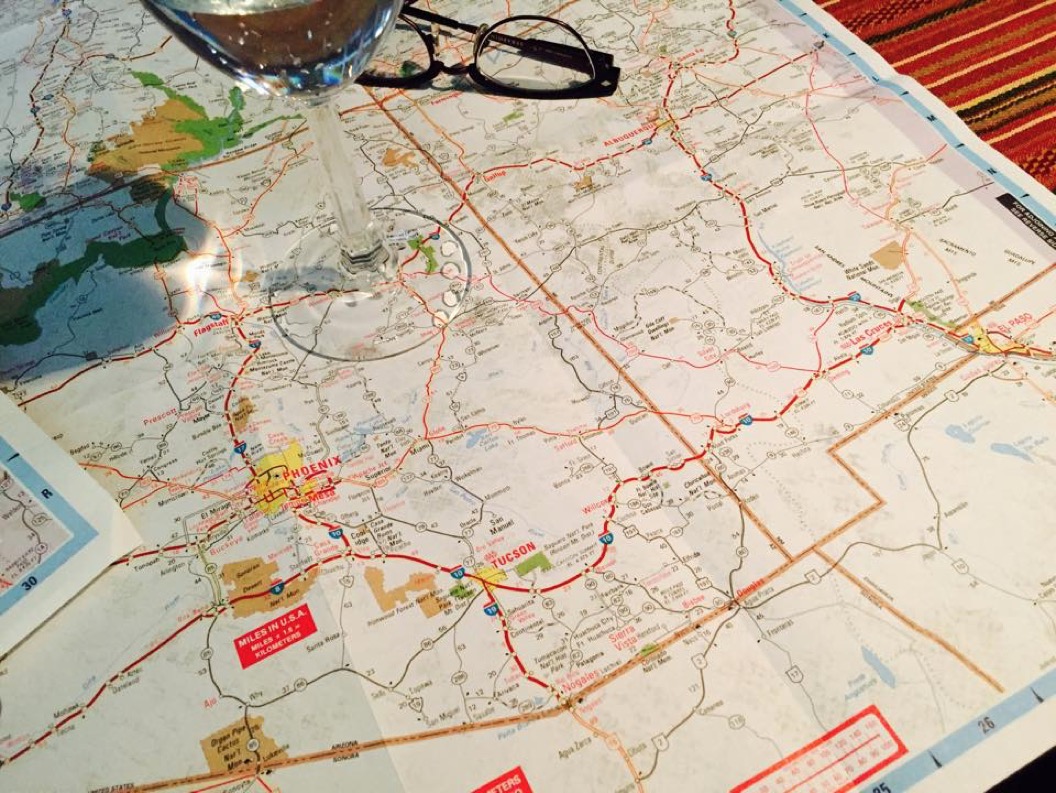 May 13, 2015 —
May 13, 2015 — On my second day in Tucson, Joel Smith, operations manager for
Humane Borders, a non-profit humanitarian organization based in Tucson, took Mel and me out on a desert run. We met him at the organization's headquarters at 6:00 a.m. ready to roll on what turned out to be another long and emotional day for me.

As soon as we arrived, Joel does not waste time - he does this twice a month and knows how precious the coolness of the day can be, so we quickly pile into his truck and head out to the desert to begin our work.

Joel is responsible for filling strategically-positioned barrels with fresh, cool water in the most remote, dangerous areas of the Sonoran desert, where dehydration is the leading cause of death by immigrant crossing over from Mexico, Guatemala or Honduras.

As he drives through the harsh Sonora Desert, Joel stays vigilant, regularly cleaning the water barrels and testing the water in each and every barrel to ensure it remains fresh and cool, and that the PH balance is normal.
It amazes me how he does not need a map to locate each barrel site, and how he easily maneuvers his truck through rocks, cactus and miles and miles of dirt.

He also remains vigilant of strewn items like backpacks, shoes, or jackets; items that look like human bones or other human remains. On this day, Joel stops three times to check on white objects lying on the side of the road or spotted a few feet away by his eagle eyes. Could it be a human femur or arm bone? He stops the truck and gets out to check each time: they're not human, but they are animal bone.

Joel tells me he has come across people taking drinks at the water stations, but he is not allowed to give them food or take them back into town. It's an agreement he has made with Homeland Security in exchange for being allowed through border crossings and into the bleak dessert to do this work. This project is carried out with the support of members of Homeland Security and the local Border Patrol.
Joel comments that some Border Patrol officers have told him how grateful they are that he and other volunteers do this. Some members of the Border Patrol do care about the safety of people they know are out in the desert, and also want to lower the number of deaths in the desert.

Joel is also vigilant of bullet holes on some of his water containers, caused by gunfire by local militia who call themselves
Minute Men. When he checks the freshness of the water barrels, Joel tells me also looks for possible traces of urine or poison, which on occasion are added to the barrels by these anti-immigrant groups. When he finds the water contaminated, he dumps it out and replaces the entire barrel with a spare that he carries on the back of his truck.
As we drive over an overpass to get to a water tank just around the corner, Joel refers to it as "Minute Man Bridge," and points out the small flags that line the railings. Local
Minute Men put them there, he tells me and Mel, to send a message to immigrants crossing through that section as a reminder that: "This is America, and don't you forget it."
I find these flags more chilling than the bones we saw in the desert.
More photos about Tucson here ➤
And more here ➤
Next ➤➤








